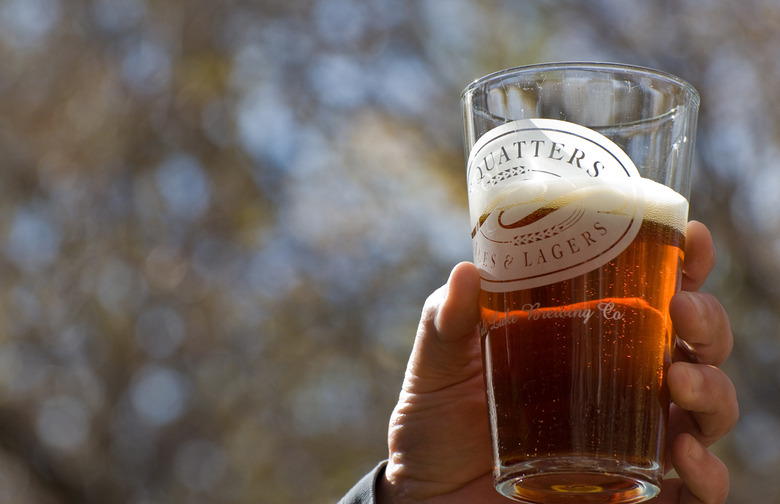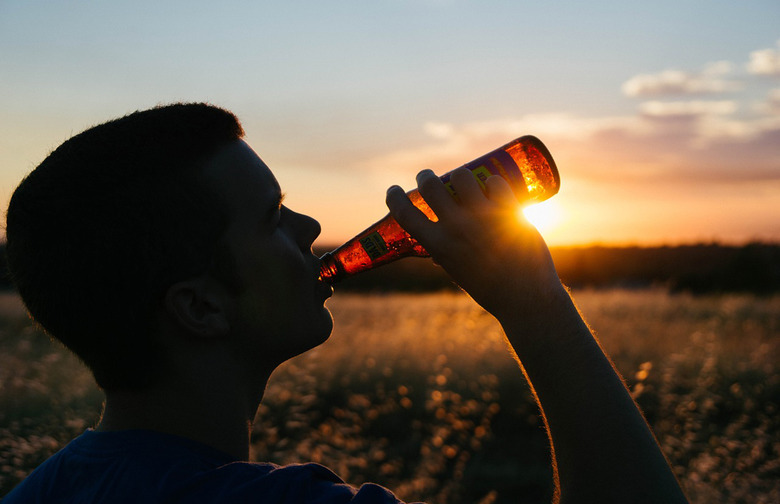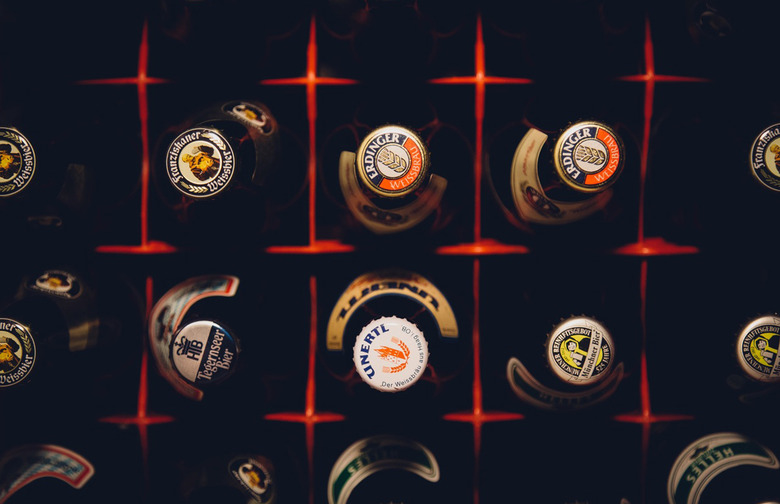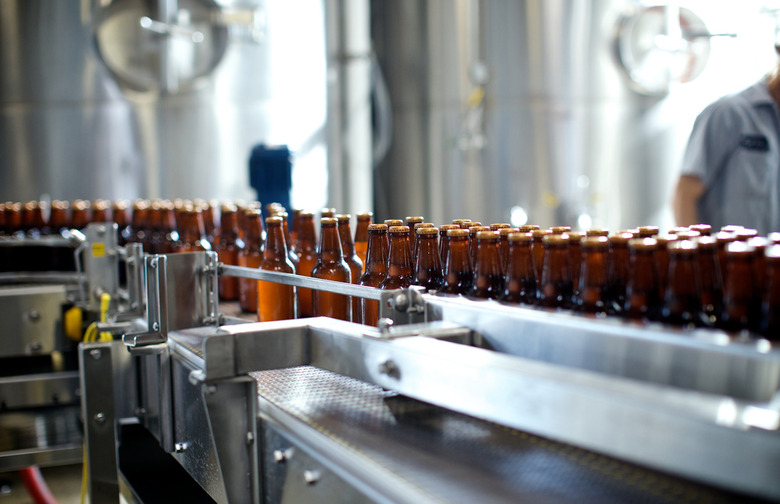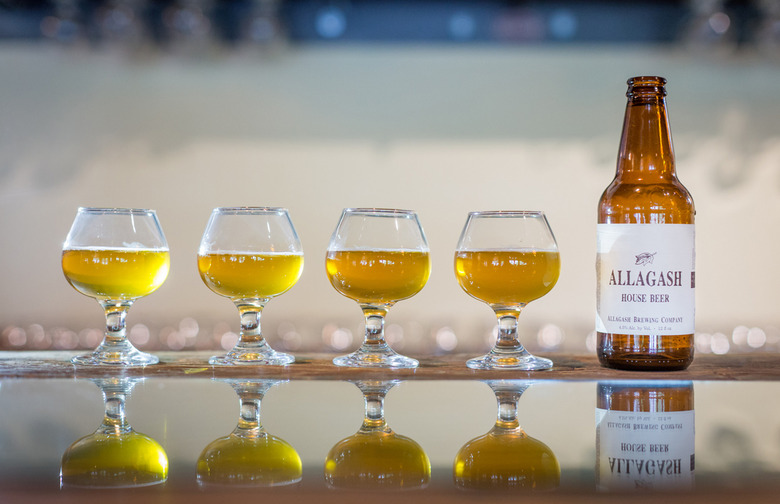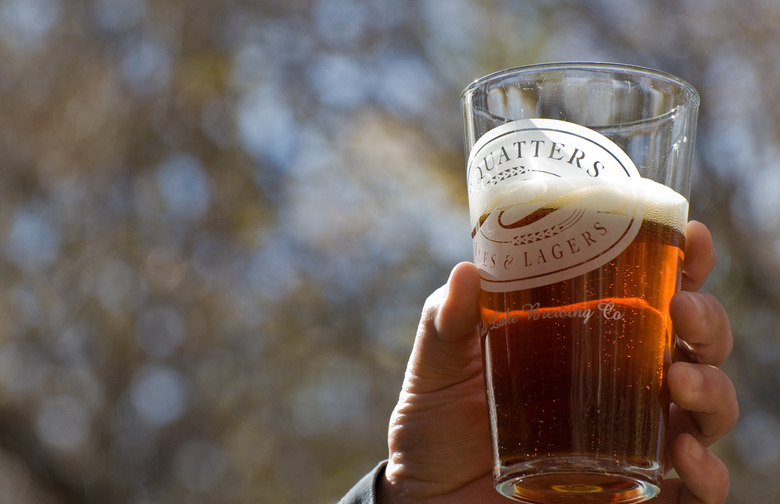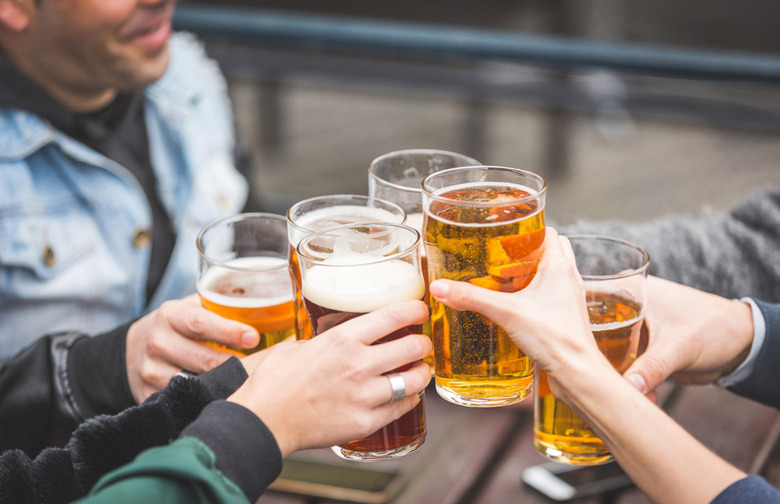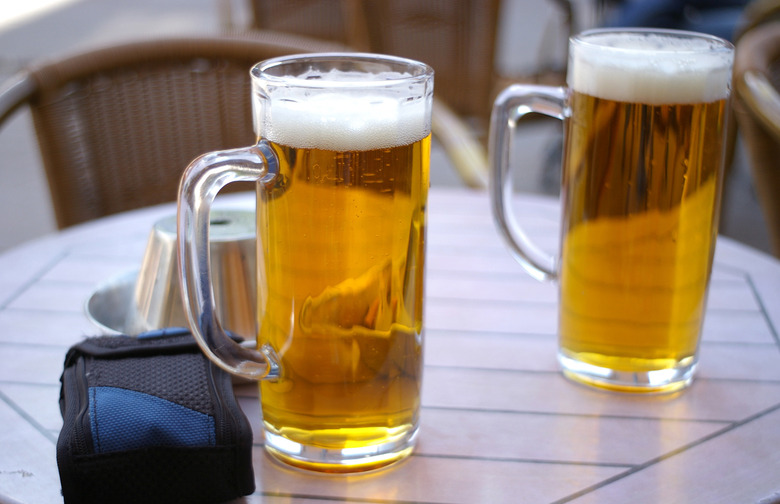Is There A Place For Beer In A Healthy Diet? Yes, If It's The Right Kind Of Beer
Beer not only has researched health benefits, but it tastes pretty good too. We've added to some of our previous lists of reasons beer is healthy in order to give you a new updated list of beer's health benefits. As a bonus, we'll suggest some righteous brews along the way.
Click ahead to see Is There a Place for Beer in a Healthy Diet? Yes, If It's the Right Kind of Beer.
Beer Is a Multivitamin
Beer contains vitamins B6 and B12 as well as folic acid, and it's been shown that drinking beer can significantly boost vitamin levels in the body. A study found that beer drinkers showed 30 percent higher levels of vitamin B6 in their blood than non-beer drinkers. Dark beers, especially, have the most antioxidants, so grab a porter and enjoy your vitamins in liquid form.
Brains Need Beer, Too
Having a pint per day can reduce the risk of mental decline for men and women by as much as 20 percent. Who'd have guessed that beer would join the ranks of 10 Best Foods for Brain Health alongside healthy foods like sardines and spinach? If you really want to get brainy, try one of Right Brain Brewery's beers from its extensive brew list.
Drink for Your Heart
Forget putting some hair on your chest: Drinking beer may be more beneficial for what sits inside the chest than what grows (or doesn't) out of it. If you drink a pint or so of beer a day, your risk of heart disease may be lower. In women, moderate beer consumption has been shown to lower the risk of heart disease by 30 percent. The abuse of alcohol can be quite detrimental for one's heart, though.
Drinking beer in moderate amounts can also lower your risk of heart attacks and cardiovascular disease by 25 to 40 percent. This is because beer increases HDL, or what is known as "good" cholesterol, and reduces the chances of arteries hardening and blood thickening, which are two major causes of heart attacks.
Fill Up on Beer
Unlike some other alcohol options, beer tends to be quite filling. Regardless of the type of beer, the combination of calories, carbohydrates, and carbonation in beer can render a beer drinker full after just one pint, meaning that you're apt to drink (and eat) less. If you really want to feel full from a beer, we have a suggestion: North Coast Brewing Co.'s potent, espresso-like Old Rasputin Russian Imperial Stout. Why? This complex, chocolaty stout is best enjoyed in servings of one at a time because of its heaviness and high ABV of nine percent.
Hey, Kidney Stones: Beware of Beer
It's been said that for every bottle of beer men drink daily, they reduce their risk of developing kidney stones by 40 percent. This is possibly due to beer's high water content of 93 percent. Should you throw caution to the wind and drink as many beers as possible in the name of kidney health? No, but your kidneys may benefit from having one or two Budweisers on occasion.
Insulin Sensitivity Up, Diabetes Down
According to one study, moderate beer consumption increases insulin sensitivity, which helps protect against diabetes. If you're like the author of the present article, you'll probably want to make your one- or two-beer moderate consumption a craft consumption: The slightly hoppy, lightly malted schwarzbier by Wynkoop Brewing Company called B3K Black Lager seems to be a good option.
Pale Ales for Bone Health
Pale ales are rich in silicon, a compound that is linked to better bone health. If you're lucky, you'll be able to get your hands on one of Three Floyds Brewing Company's Zombie Dust pale ales. It will most likely be easier to find a regular old Sierra Nevada Pale Ale, though. Regardless, selecting a pale ale and enjoying one or two will help to promote bone health.
Pick a Healthy Pint
All beer is not created equal, and choosing some beers over others proves a healthy decision. There's a reason that Cory Gregory, the absolutely shredded founder of MusclePharm (a bodybuilding supplement company), tends to choose Guinness when he decides to drink: It comes in at just 126 calories with 40 or so of those calories coming from around 10 grams of carbohydrates. Unlike other beers, Guinness also benefits from containing a relatively high amount of antioxidants and a low ABV at 4.0. If you're looking to choose a healthy brew, Guinness should be your go to.
Post-Workout Brewcovery
Researchers in Spain found that beer can rehydrate the body faster than a sports drink or water. Just like chocolate milk, beer has the right combination of carbs and protein to help the body recover after expending a lot of energy and fluid. Beer is certainly no protein shake, but it also can alleviate post-workout aches and pains.
Sláinte na Bhfear Agus go Maire na Mná go Deo
"Health to the men and may the women live forever" is a phrase you may hear in Ireland, and odds are if you're hearing this, you and those around you will all have a pint in your hands. It turns out that that pint of beer in your hand may contribute to health and longevity, as beer drinkers tend to live longer. The USDA estimates that moderate drinking prevents about 26,000 deaths a year. This is true in other countries as well, as a study reports that "if European beer drinkers stopped imbibing, there would be a decrease in life expectancy of two years" — but be careful: These estimates stand in stark contrast to the 27 people who die per day due to drunk driving. The healthiest thing you can do while drinking beer is to make sure you have a responsible, sober ride lined up ahead of time.
You Don’t Need to Choose Light Beer, But If You Choose To…
In the diehard craft beer enthusiast's code of conduct, there's a time and place for drinking light beers: You drink them when there's no other options, as a last resort, and only if there's no bottle of Jack Daniels lying around. We live in an era where you can get craft beers on draught at sporting events and chain restaurants, and you can even find selections of six packs in gas station refrigerators. While drinking one or two IPAs or porters may be less appealing to some than slugging down 10 Bud Lights, both can be beneficial to your health.
Light beers benefit from having less calories than many of their craft counterparts. If it's calories you're worried about, some big-name breweries make light beers with under 100 calories (Bud Select 55, Miller64, Michelob Ultra). Sticking to one or two of your favorite craft brewery's pilsners may also be a viable, healthy option: Pilsners generally have a lower ABV than stouts and IPAs, meaning they'll be lower in calories too. We suggest Victory Brewing's simple, sessionable Prima Pils.
